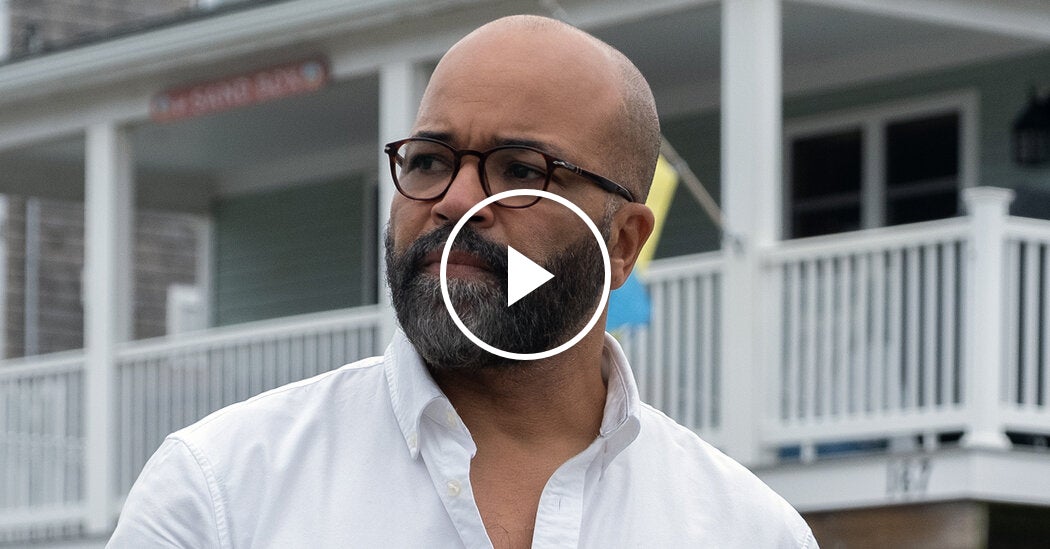new video loaded: ‘American Fiction’ | Anatomy of a Scene
transcript
transcript
‘American Fiction’ | Anatomy of a Scene
The screenwriter and director Cord Jefferson narrates a sequence from “American Fiction,” starring Jeffrey Wright.
-
“My name is Cord Jefferson and I’m the writer and director of the film ‘American Fiction.’ The scene is our lead character, Monk, played by Jeffrey Wright, is sort of frustrated by the lack of imagination that people have when it comes to the stories that people are allowed to tell about Black life. And so in this fit of rage when one of his books is not selling and he’s sort of seeing the ways in which culture latches on to these kind reductive views of Blackness, he’s decided to write his own version of that hyper-stereotypical Black story. Also in the scene is Keith David as Willy the Wonker and Okieriete Onaodowan as Van Go in the scene that is manifesting before Monk’s eyes as he writes it in the Word document.” “Don’t shoot me partner. Come on now.” “So this film is adapted from Percival Everett’s novel ‘Erasure’ which was published in 2001. So this scene is not in the novel. If you’ve read ‘Erasure’, you’ll know that the entirety of ‘My Pafology,’ this sort of prank book that Monk writes is published within the novel ‘Erasure.’ I knew that that’s not very cinematic I didn’t want to show the character of Monk just sort of sitting there pounding at his keyboard furiously and I think that we’ve all seen that enough. And I don’t think it gets at the gravity of what the character is writing particularly in this instance, when you really needed to understand what it was that he was putting down onto those pages.” “Look at my face. Look at my midnight Black comple — no, that’s not right.” “What did you want to say? You can say it better than that. Right, come on. What do you want? Think about it, Van Go. Look at my face. Look at my cold Black skin and then look at your own. Look at my Black eyes and look at your own. Look at my big Black lips and look at your own. I’s your daddy whether you like it or not?” “Shut up!” “So I did intend this scene to be funny and I think that the characters play it that way. The thing that became interesting as we were shooting the scene is that Ok and Keith David are such great actors that you have this inclination to take them seriously because they’re such wonderful performers. And so I think that I wanted it to be comedic but I never had a desire to make that comedy obvious.” “I think now will come some sort of dumb melodramatic sob story where you highlight your broken interiority. Something like, I don’t know — I hates this man. I hates my mama and I hates myself.” “Yeah, the intention was to be funny but without saying like oh, this needs to be played super broad. Ultimately, I wanted it to be a little restrained and I think that, in fact, that makes the scene better.” “And I see eyes that don’t care what happens tomorrow.”
Recent episodes in Anatomy of a Scene
Film directors walk viewers through one scene of their movies, showing the magic, motives and the mistakes from behind the camera.
Film directors walk viewers through one scene of their movies, showing the magic, motives and the mistakes from behind the camera.
